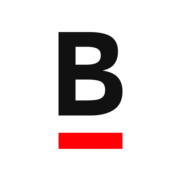4 Crypto-Native Platforms for Vibecoding Apps

As we explored in our recent piece on vibe coding, AI is transforming software from a precious, months-long endeavor into something more like content — quick to create, easy to remix, and built for iteration.
This "contentification of software" has found a natural home in crypto, where open-source norms, composable smart contracts, and financial incentives create the perfect playground for rapid experimentation.
The synergy’s quite obvious: crypto provides the social and financial rails that can turn simple software into viral experiences. You can spin up an idea, attach a token, and have an engaged user base within hours. It's the kind of environment where software doesn't need to be perfect — it just needs to be interesting and social.
Now, a wave of crypto-native platforms are making this vision more accessible than ever. These tools let anyone turn ideas into onchain apps without writing code, often complete with built-in tokens and monetization. Here's a look at four platforms leading the charge.

🛠 dev.fun
Native to Solana, dev.fun takes the pump.fun ethos and applies it to app creation, turning natural language prompts into live apps tied to existing tokens. The platform offers Brainstorm Mode to refine ideas and Coding Mode for Git-style commits that track iterations. You can preview apps for free, but launching requires linking to a pump.fun token.
What Stood Out:
- Upload your own 2D and 3D assets
- $2 fee covers compute and deployment; apps can be remixed by others
- The dev.fun World Cup happening now — a global competition from June 5-15 where participants from Europe, India, Asia, and Africa compete for a $15,000 prize pool
announcing the devfun World Cup 🏆🌍, powered by @solana!
— dev.fun (@devfunpump) June 5, 2025
10 days. 4 regions. 1 ultimate winner.
we’re calling all builders, degens, idea guys & meme engineers — it’s time to rep your region & ship greatness
task: build the most fun, wild, or legendary app you can and… pic.twitter.com/JPOm1Y5gxP
🎮 Uber.fun
Also on Solana, Uber.fun lets you build apps, deploy them on their domain or yours, and launch adjoining tokens. You can select from ChatGPT 4.1, Claude 4, or Gemini 2.5, plus upload images to define your app. After leaving Believe over token launch transparency issues, the team built their own ufun token launchpad, which they plan to merge directly with Uber.fun soon. Over 10K apps have been launched on Uber so far.
What Stood Out:
- Must launch a token to deploy; choose between ufun or Believe
- Add assets mid-build like dev.fun
🧱 Ohara
Base-native Ohara turns prompts into functional apps but offers standout flexibility – you can launch an "App Coin" or monetize through integrated APIs like those from Flaunch. The API integrations drew me to Ohara: you can configure apps to use DEX aggregator 0x, deploy as World or Farcaster mini apps, build smart contracts via Third Web, or connect to Polymarket's API. You also get unlimited iterations before launch and, as of Wednesday, app generation has improved, supporting better outputs, auto-debugging, and prompt enhancement.
What Stood Out:
- Direct Farcaster integration for Mini App deployment
- Unlimited generation and extensive API integration
- Weekly contests where top market-cap apps win $100 investment and promotion
I built CageMind, an MMA analyzer, and asked it who will win in the UFC Fight Sean vs. Merab Part 2 based on data.
— serstaxx⚡️ (@SerStaxx) June 4, 2025
Is the parley cooked? 🧐
built on @tryoharaAI in 10 prompts btw 😌 pic.twitter.com/58HGwV14J9
🌊 Poof
Built on Solana via AllianceDAO's accelerator, Poof specializes in Solana-native dApps with the smoothest interface of all the platforms tested. Still in beta with 1K+ dApps created (deployment limited to devnet), Poof excites me most for its "coming soon" features. "Download Your Code" would let you export to platforms like Cursor or Windsurf. "Raise Money for your App" hints at fundraising which, given the AllianceDAO connection, (hopefully) doesn’t require instant token deployment but rather access to the accelerator’s network (would be cool).
What Stood Out:
- Clear task summaries with focus areas and implemented changes
- "Retry with additional instructions" for easy iteration on completed work
Overall, Ohara stands out as the most mature option today. Its native integrations and direct Farcaster Mini App porting make it the clear winner for vibe coding in crypto right now. You're not just building an app, you're plugging into a live social graph.
But, these platforms don't rival holistic tools like Cursor or Windsurf just yet. As we land more crypto-native SDKs (cue OnchainKit and MiniKit), and with APIs shipping LLM-friendly docs, spinning up advanced apps with AI coding assistants is getting much easier.
But, what these crypto-native platforms lack in power and flexibility, they make up for in accessibility and built-in financialization. They're lowering the bar for builders who want to experiment with social, financial software. And, as the tools mature, only one thing will separate those who want to build dApps from those who do: the agency to build.
